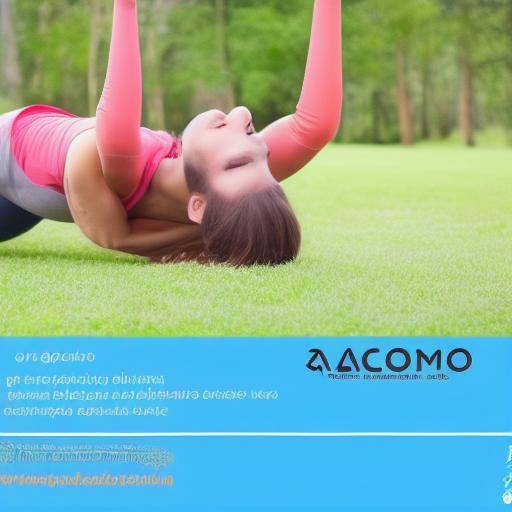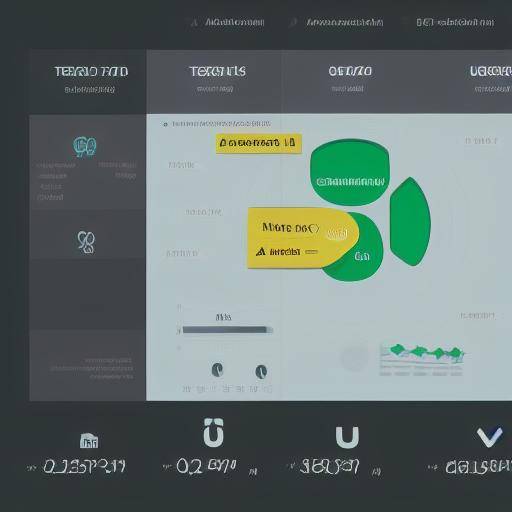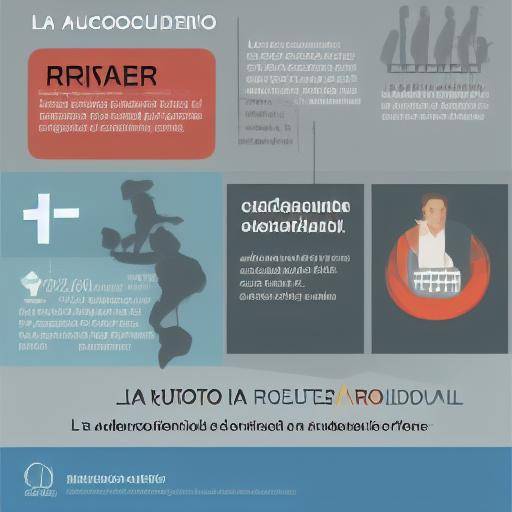
In the accelerated and demanding world in which we live, self-care and self-control are two essential elements to maintain a comprehensive personal well-being. Understanding the importance of these aspects and how they relate is crucial to developing a balanced and healthy life. In this article, we will explore in detail the meaning and importance of self-care in the development of self-control, its relationship with personal well-being, practical advice, deep understanding, and future trends. Join us on this journey to a more conscious and healthy life!
Introduction
Self-care, self-control and personal well-being are interrelated concepts that play a fundamental role in the lifestyle of each person. Each of them nourishes each other, influencing itself in a continuous cycle that moulds our quality of life. Understanding how self-care impacts the development of self-control and, in turn, contributes to personal well-being is essential to promote a balanced, satisfactory and healthy life.
What is self-care?
Self-care encompasses all actions that a person does consciously and deliberately to maintain, improve or restore his physical, mental and emotional health. This involves adopting habits and practices that promote comprehensive well-being, including healthy eating, regular exercise, stress management, proper sleep, mental health care, among others.
The importance of self-control
Self-control refers to the ability to regulate and manage our emotions, thoughts and behaviors in pursuit of long-term goals. Developing self-control involves being aware of our actions, resisting momentary impulses and making decisions aligned with our values and objectives. This ability is crucial to maintain discipline, motivation and resistance against challenges.
Relationship to personal well-being
Personal well-being encompasses the balance between physical, emotional, social, spiritual, occupational, intellectual and environmental well-being. Self-care and self-control are fundamental pillars for achieving comprehensive well-being, as they enable healthy habits, stress management, positive relationships, purpose and meaning, among other aspects.
History and Background
The concept of self-care has profound historical roots, influenced by different traditions and currents of thought. From personal care practices in ancient times to the evolution of more modern approaches, self-care has experienced a significant journey throughout history.
Within the history of self-control, we find the influence of philosophers, psychologists and thinkers who have reflected on the importance of this capacity in human development. From Aristotle's teachings on moderation to contemporary research on willpower, self-control has been studied over the centuries.
Personal well-being, for its part, has been a constant concern for societies throughout history. Ancient cultures such as the Greek and the Romans already valued the importance of a balanced life, and this interest has been maintained over the centuries, leading to more and more integrated and holistic approaches.
Analysis in Deep
Benefits of Self-care and Self-control
Self-care and self-control entail a wide range of benefits that directly impact personal well-being. From improvements in physical and mental health to a greater sense of satisfaction and fullness, these habits promote a more balanced and meaningful life.
Self-care:
- Improves physical health and prevents diseases.
- It reduces stress and anxiety.
- Promote self-esteem and self-love.
- It fosters a greater connection with oneself.
- It increases energy and vitality.
Autocontrol:
- It allows you to make more conscious decisions.
- Little girl to resist temptations and bad habits. - Encourages the establishment and achievement of long-term goals.
- It contributes to healthier and rewarding interpersonal relationships.
- It increases the sense of control over one's life.
Challenges and Challenges
While self-care and self-control offer many benefits, they also face significant challenges in today's society. The accelerated pace, labor demands, chronic stress, and overexposure to digital stimuli represent important obstacles to the effective implementation of these habits.
Excessive responsibilities, lack of time, social pressure, and disconnection with oneself can hinder the constant practice of self-care and self-control. It is therefore essential to identify and address these obstacles to foster a more balanced and healthy lifestyle.
Current trends
At the present time, we observe a growing interest and awareness of the importance of self-care, self-control and personal well-being. More and more people seek to integrate self-care practices into their daily lives, adopting holistic approaches that promote physical, mental and emotional balance.
The business environment also shows a paradigm shift, recognizing the importance of employee welfare as a key factor for productivity and job satisfaction. Strategies such as comprehensive welfare programs, labor flexibility and emotional support are gaining ground as key practices in healthy working environments.
Comprehensive review
Practical Applications
The implementation of self-care and self-control encompasses various areas of daily life, from the individual to the working and social environment. Incorporating healthy habits, establishing clear limits, cultivating emotional resilience, and practicing self-regulation are examples of the many practical applications of these concepts.
Success cases
Numerous cases of success have been documented that show the positive impacts of self-care and self-control in people's lives. From inspiring stories of personal overcoming to testimonies of significant transformations, these cases exemplify the transformative power of these habits in real life.
Comparison and Contrast
The comparison between self-care, self-control and personal well-being reveals key intersections and differences that enrich the understanding of these concepts. While self-care focuses on individual care and strengthening practices, self-control points to internal regulation of emotions and behaviors. Both elements, however, converge to promote integral personal well-being.
Practical Tips
To promote self-care and develop self-control, it is essential to adopt concrete practices that strengthen these pillars. From the introduction of healthy routines to the establishment of clear limits, the following practical advice provides concrete guidance to initiate and maintain a well-centred lifestyle.
- Prioritize self-care in your daily routine, assigning time for activities that nourish you physically, mentally and emotionally.
- Practice full attention to develop emotional self-control and thoughts regulation.
- Set healthy boundaries in your interpersonal relationships, learning to say no when necessary.
- Find professional support if you need additional guidance to develop habits of self-care and self-control.
- Build a social support network that favors a back-up environment in your search for personal well-being.
- Keep self-discipline by setting clear goals and working consistently on their achievement.
Conclusions
Self-care and self-control are two fundamental facets to achieve full personal well-being. Conscious integration of healthy habits and internal regulation of emotions and behaviors contribute not only to individual health and balance, but also to satisfaction and fullness in everyday life.
By understanding the importance of self-care in the development of self-control and its direct relationship with personal well-being, we can take significant steps towards a more conscious, balanced and satisfying life. By adopting self-care practices, strengthening self-control and prioritizing integral well-being, we embrace the opportunity to live more fully and meaningfully.
FAQs
What is the importance of self-care in the development of self-control?
Self-care provides the basis for strengthening self-control by promoting healthy habits, reducing stress and fostering a deeper connection with oneself. By actively caring for our needs, we create an enabling environment for self-regulation development and resistance to destructive impulses.
How can I integrate self-care into my daily routine?
Incorporating self-care into everyday life begins with the identification and prioritization of activities that nourish your physical, emotional and mental well-being. This can include from balanced exercise and nutrition routines to relaxation practices and time for recreational activities that bring you joy and satisfaction.
What is the relationship between self-control and personal well-being?
Self-control plays a key role in promoting personal well-being by enabling people to face resilience challenges, regulating their emotions, resisting destructive impulses and making decisions aligned with their long-term values and goals. This capacity contributes to a more balanced, satisfactory and meaningful life.
What are the most common obstacles to self-care and self-control?
Common obstacles to self-care and self-control include the accelerated pace of life, labour demands, chronic stress, overexposition to digital stimuli, lack of time and social pressure. Identifying and tackling these challenges is essential to enhancing the effective practice of healthy habits.
How can I strengthen my emotional self-control?
Strengthening emotional self-control can be achieved through practices such as meditation, full care practice, development of emotional intelligence, identification and management of negative thoughts, and fostering habits that promote emotional stability and resilience to adversities.
What is the impact of self-care and self-control in the workplace?
Self-care and self-control play a crucial role in the workplace by promoting emotional health, stress resistance and conscious decision-making. Organizations that foster an enabling environment for self-care and self-control often experience greater satisfaction and productivity of their employees.
Self-care, self-control and personal well-being are intrinsically interconnected, forming the pillars of a full and satisfactory life. In understanding their importance, integrating concrete practices and addressing challenges, each individual has the opportunity to cultivate a lifestyle that promotes harmony, resilience and personal growth. In short, the path to integral well-being begins with conscious attention to oneself and the ability to direct our energies towards a more full and meaningful living.






















































